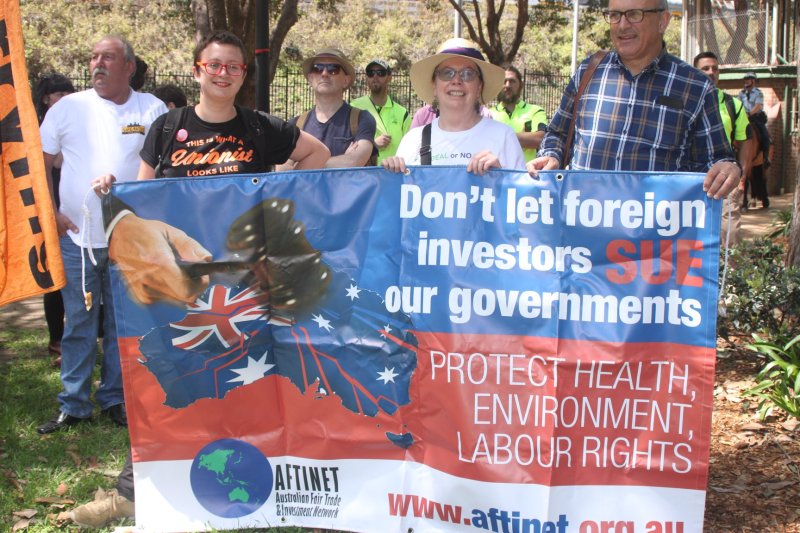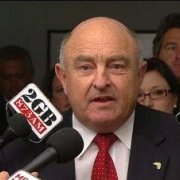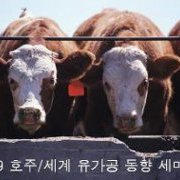- Negotiations

In the last two years the Australian Government has finalised bilateral trade agreements with China, Korea and Japan, which are now in force. The Trans-Pacific Partnership agreement between 12 Pacific Rim countries has been agreed, but is being reviewed by a Parliamentary committees before Parliament votes on the implementing legislation. The TPP will not come into force until six of the 12 countries including the US and Japan pass the implementing legislation, which is expected to take two years.
The current conservative Coalition government has agreed to include Investor-State Dispute Settlement (ISDS) provisions in the Korea and China bilateral FTAs as well as the TPP. ISDS allows foreign companies to bypass national courts and sue governments for compensation if they can argue that a change in law or policy harms their investment. The previous Labor government had a policy against ISDS, and even a previous Coalition government did not include ISDS in the Australia-US free trade agreement in 2004.
There is widespread opposition in the Australian community to the inclusion of ISDS in the TPP. The TPP is also controversial because it extends monopoly rights on expensive life-saving biologic medicines, which will mean more years of very high prices before cheaper versions become available. There are also grave concerns about its impacts on food labelling standards and expanded access for temporary workers without additional protection of workers’ rights. A recent World Bank study found that Australia was only likely to gain almost no economic benefit from the deal.
Australia is currently involved in multilateral negotiations towards the PACER-plus agreement with New Zealand and 14 Pacific Island countries, the Regional Comprehensive Economic Partnership (RCEP) and the Trade In Services Agreement (TISA). It is also negotiating bilateral trade agreements with India and Indonesia and will begin talks with Hong Kong and Taiwan later this year and the EU next year.
Contributed by AFTINET
last update: May 2016
Photo: AFTINET
10-Dec-2010
AAP
Australia’s federal government wants to introduce trade reform that focuses less on geopolitical concerns and more on national productivity.
4-Nov-2010
Jakarta Post
Indonesia and Australia have agreed to begin negotiations to create a framework for a comprehensive economic partnership agreement (CEPA) to further enhance trade and investment exchanges between both countries.
22-Sep-2010
AAP
Australia’s National Farmers Federation president David Crombie says Korea has agreements with Australia’s two biggest competitors, the United States and the European Union, which could sideline Australian farm exports once ratified.
20-Sep-2010
Stock & Land
Australian businesses feel they are getting little benefit from free trade agreements negotiated by the federal government and think there are better ways to help companies competing abroad.
29-Aug-2010
As hopes for free trade agreements with China and Japan fade, there is a push for Australia to start talks with Taiwan.
20-Aug-2010
Labor has promised more of the same on trade if it is re-elected on Saturday.
25-May-2010
Bloomberg
Australia and South Korea opened a new round of trade talks today, including “sensitive” areas such as agriculture and the automotive industry, Australian Trade Minister Simon Crean said.
6-May-2010
Australia Thursday said it had taken a major step towards a free trade agreement with India, with a study carried showing a bilateral deal would offer "significant economic benefits" to both sides.
5-May-2010
AFN
A joint study finds that an Australia-India FTA will bring billions of dollars to both countries.
29-Mar-2010
The Age
As the assault on national sovereignty continues, the question is whether the ’’market system’’ can fill the vacuum as the power of the state withers away.







